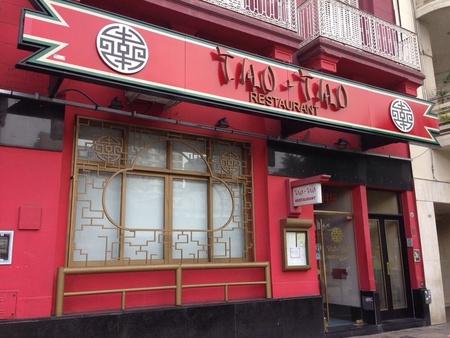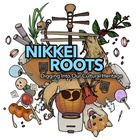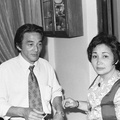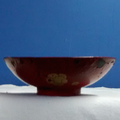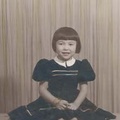My father arrived from the East to Argentina, in the first decade of the 20th century.
At that time, Japan did not stand out as the world power it is now. He was a poor immigrant, fleeing a country at constant war, expansionist, dominated by feudal lords who ignored the lower classes. That may be why he fell so spontaneously in love with our country, so generous and, even in those times, so open to immigration.
When my father married my mother, of Italian descent, they both brought their own flavors to our daily meals. There were no more delicious pastas than the ones my mother kneaded, there were no more exquisite sukiyaki than the ones my father prepared. However, when he referred to “his homeland” he always thought of Argentina, his adopted land. It was a deep feeling, impregnated with gratitude and respect for this territory, for its generous nature that offers itself exultantly without asking for anything in return.
I admit that he spoke very little about that other homeland, which he had left behind, perhaps because the war, the devastating atomic bombs, must have shocked him so much that he preferred not to make any comments about it. He did not even have negative observations for the main enemies of that contest, our North American neighbors. I just didn't watch his movies, with the pretext that I had to learn our language. He went to the cinema to see exclusively Argentine feature films, thus he became an admirer of Lolita Torres, Luis Sandrini and so many other characters on our celluloid.
However, there was a resentment in his heart that he could not hide, his absolute dislike for Chinese citizens. I suppose it brought to mind old territorial controversies. He used to ask us to beware of them, whom he classified as deceitful, false and unhygienic.
We inherited the oriental features from my father, we have few physical characteristics from my mother. Our Argentine compatriots simplified this complex mixture of races by calling us “Chinese.” It was the most humiliating insult we could receive, my family could not understand how such confusion occurred.
For my father, a Japanese did not look at all like a Chinese, something I have never verified. My sisters, trying to explain this uncomfortable situation, said that those who called us that did it just to annoy us.
Instead, I was convinced that the confusion came from there being no difference in our features and that was it. At that time there was not as important Chinese immigration in our country as it is now, but to avoid taking risks we never approached anyone with features similar to ours, thus avoiding unpleasant surprises.
My father had emphasized so much about the capacity of the Chinese to do evil that he instilled in me a deep fear of their people. When I was just about to turn nine years old, my father passed away.
My mother plunged us into an isolation of silence and shadows from which she could never recover. He didn't even allow us to listen to light music and decided of his own free will not to leave the house anymore, except on special occasions.
But as life goes on, after a couple of years my sisters fell in love and got married. One of them had married a Japanese lover of gastronomy, who after working in a dry cleaners like all the newcomers of this group did, decided to make his way in what he liked most.
He got a job as a kitchen assistant in an elegant restaurant in a neighborhood of Belgrano. He was delighted, he really enjoyed the tasks, because he also learned countless things that he found very interesting. How great was my surprise to discover that it was a Chinese food place!
Absolutely shocked by the news, I asked if he was not in danger, to which everyone responded by laughing, because it was such an absurd comment. Time had passed and my father's warnings had been forgotten, although that was not my case. My brother-in-law had been working there for a year when he came to tell us that the Lang family, I think that was their name, invited us to lunch there on a Sunday. They wanted to celebrate the commercial success they had had, which gave them the possibility of opening another branch in the short term. At that time there weren't that many Chinese restaurants, so the few that existed were very expensive and elegant.
Of course my mother excused herself, but not before giving us endless recommendations regarding our behavior at that lunch. Thank you countless times for the food, always praising the owners of the house even when we didn't like the dishes. Dressed in our best clothes, and excited at the idea of eating somewhere other than a relative's house, we all went out happy to enjoy that lunch.
Already at the door of the premises, I could not prevent a feeling of fear from overcoming me and as a precaution I gave way to the elders. I was the last to enter, I wanted to see how my family greeted our enemy.
However, everything unfolded in perfect harmony, we were greeted by Mrs. Lang, very smiling and elegant, with her hair shiny and styled in a charming bun held by a beautiful golden hair clip. I remember being very impressed by the splendor of the room, with its paper lanterns, flowery decorations and somewhat monotonous music that gave a touch of joy to the place. We sat at a large circular table, in the middle there was another small round table that rotated, on which there were countless plates of food. Immediately, a waiter came, also Chinese and very friendly, who told us that we could have whatever we liked and as many as we wanted.
I waited patiently for the others to start eating, I couldn't shake off my father's warnings. Almost an hour after watching everyone devour the tempting delicacies that were circulating around the table, and having verified that my relatives were still in good health, I finally dared to try... I recognized the soy sauce as a primary element of that meal, similar the one who served in my house. Many delicacies and flavors seemed almost identical to ours, accompanied by the same white rice without any seasoning. That was my first experience with Chinese food.
Then, the Lang family came to the table to sit with us since the restaurant had already closed its doors to the public. As I looked at each other, I realized that we were just like those old friends who share the table on special occasions. Except for the clothing, since the Chinese wore much more striking colors in their clothing, we all looked quite similar and even laughed at the same things.
Like so many other human beings we had reunited in this distant part of the world, beyond our ancestors but trying to live, definitely in peace.
© 2018 Marta Marenco


